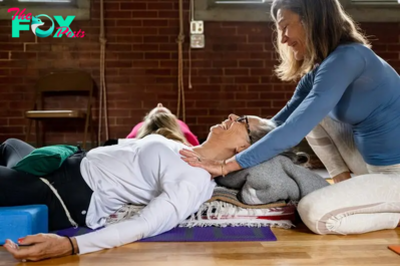Health
'The secret to living to 110 was, don't register your death': Ig Nobel winner Saul Justin Newman on the flawed data on extreme aging
From the swimming habits of dead trout to the revelation that some maMMAls can breathe through their backsides, a group of leading leftfield scientists have been taking their bows at the Massachusetts Institute of Technology for the 34th annual Ig Nobel Prize ceremony. Not to be confused with the actual Nobel prizes, the Ig Nobels recognise scientific discoveries that “make people laugh, then think."
We caught up with one of this year’s winners, Saul Justin Newman, a senior research fellow at the University College London Centre for Longitudinal Studies. His research finds that most of the claims about people living over 105 are wrong.
How did you find out about your award?
I picked up the phone after slogging through traffic and rain to a bloke from Cambridge in the UK. He told me about this prize and the first thing I thought of was the lady who collected snot off of whales and the levitating frog. I said, "absolutely I want to be in this club."
What was the ceremony like?
The ceremony was wonderful. It’s a bit of fun in a big fancy hall. It's like you take the most serious ceremony possible and make fun of every aspect of it.
But your work is actually incredibly serious?
I started getting interested in this topic when I debunked a couple of papers in Nature and Science about extreme ageing in the 2010s. In general, the claims about how long people are living mostly don't stack up. I've tracked down 80% of the people aged over 110 in the world (the other 20% are from countries you can't meaningfully analyze). Of those, almost none have a birth certificate. In the US there are over 500 of these people; seven have a birth certificate. Even worse, only about 10% have a death certificate.
The epitome of this is blue zones, which are regions where people supposedly reach age 100 at a remarkable rate. For almost 20 years, they have been marketed to the public. They’re the subject of tons of scientific work, a popular Netflix documentary, tons of cookbooks about things like the Mediterranean diet, and so on.
Related: Does the Mediterranean diet reduce dementia risk? 20-year study hints no
-

 Health39m ago
Health39m agoOsteoporosis, the silent disease, can shorten your life − here’s how to prevent fractures and keep bones healthy
-

 Health4h ago
Health4h agoBird Flu Has Been Found in a U.S. Pig for the First Time
-

 Health1d ago
Health1d agoA Vision for the Future: Hong Kong International Optical Fair to Open in November
-

 Health1d ago
Health1d agoYoga, puppies, tacos: How some Colorado voters are dealing with their election anxiety
-

 Health2d ago
Health2d agoHow Climate Change Is Causing Sleep Loss
-

 Health3d ago
Health3d agoA Better Drug May Make Transplants More Successful
-

 Health4d ago
Health4d agoWhat to Expect at an Annual Physical
-

 Health4d ago
Health4d agoWhy You Might Need Two COVID-19 Shots This Season



























